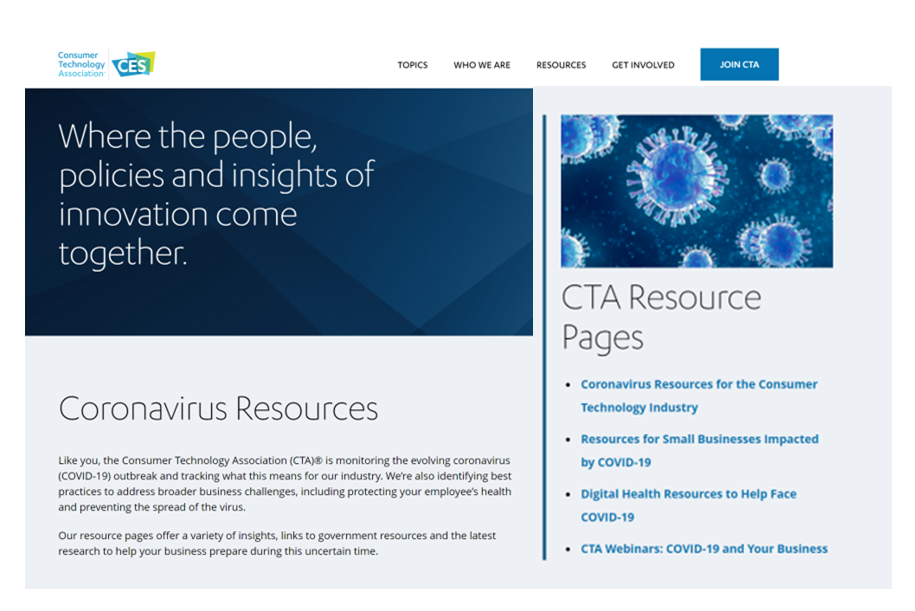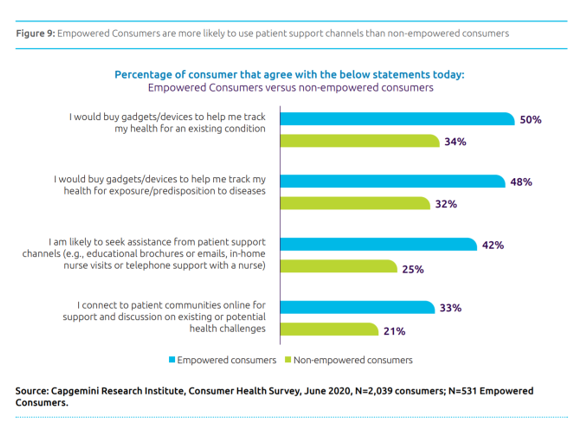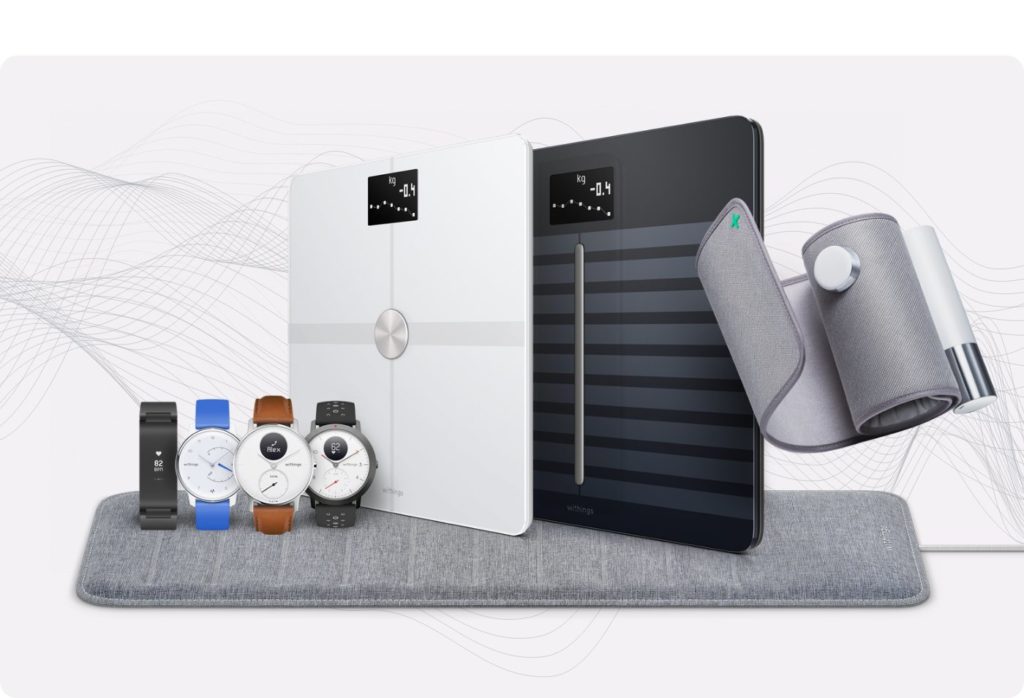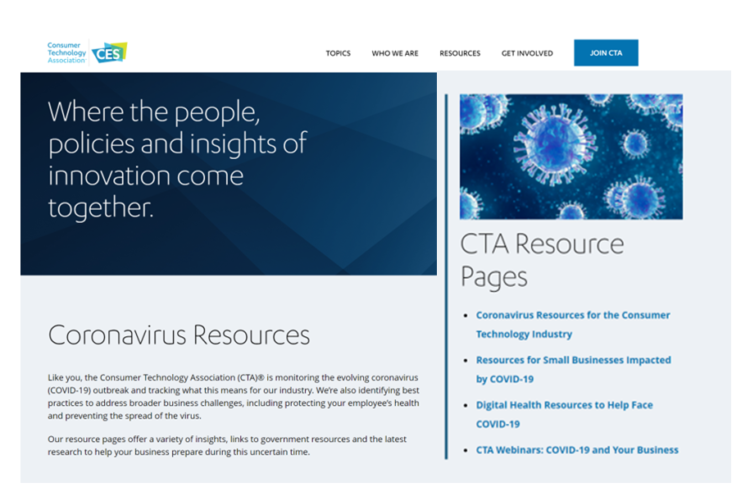This week, announcements from the Consumer Technology Association (CTA) and Withings further bolster the case for the private sector bolstering public health in this pandemic…and future ones to come beyond the Age of the Coronavirus.
 Since the pandemic emerged, CTA has been reaching out to members and stakeholders to be a useful resource for the consumer electronics industry and its customers. Digital health resources have been an especially useful touch point for CTA’s constituents (including me, as a member who is active with the Association).
Since the pandemic emerged, CTA has been reaching out to members and stakeholders to be a useful resource for the consumer electronics industry and its customers. Digital health resources have been an especially useful touch point for CTA’s constituents (including me, as a member who is active with the Association).
On 27th July, CTA announced the Association’s launch of the Public Health Tech Initiative. In a press release on the program, CTA President and CEO Gary Shapiro noted that, “The response to COVID-19 in the U.S. has highlighted the huge demand for health technology solutions. Our forward-looking initiative identifies what needs to change when we are hit by a similar pandemic or another emergency in the future. The group includes leading experts who are on the frontlines of dealing with COVID-19, and we hope to create a blueprint that will guide the effective use of technology to combat these scenarios in the future.”
Dr. Alexander Garza, one of the project’s co-chairs, said in the Initiative’s press release, “We need to accelerate the use of technology that advances coordination and collaboration between government agencies and the health sector and boost the capacity of our public health infrastructure to better deal with large-scale, future public health emergencies.”
The project’s steering committee includes folks from the American College of Cardiology (which offered CME credits to clinicians attending courses at CES 2020 on heart conditions and digital technology), the Brookings Institution, CVS Health, Doctor On Demand, Facebook, Geisinger, Health Innovation Alliance, Microsoft (whose Global Chief Medical Officer, Dr. David Rhew, will be co-chair), Northwell Health, Philips, Providence, ResMed, SSM Health (whose Chief Medical Officer, Dr. Alexander Garza, will co-chair the effort with Dr. Rhew), and UCHealth.
In context, CTA’s digital health community has grown year after year over the past decade. Twelve years ago, when I began to attend CES, digital health was a nascent category featured with products featured in a couple of aisles in exhibit booths then dominated by Fitbit, Nike and UnderArmour. In 2020, CES featured several hundred digital health exhibitors and a growing array of Internet of Things-connected devices adjacent to health and wellness, with representation from beyond “pure” wearable health tech ranging from FDA-cleared blood pressure watches from Omron to health insurer Humana in the exhibit hall.
 It’s these very consumer-facing technologies featured at CES that can bolster information-gathering at the N of 1 patient, self-caring in the Age of Corona at home. The growth of virtual care and telehealth, adoption of wearable technologies (discussed here in Health Populi in yesterday’s coverage of the Capgemini health consumer study), and growing use of the cloud were all shown off at CES 2020. This chart illustrates the growing consumer interest in wearable tech and home monitoring for health care, showing growth in purchasing intent pre- and during the COVID-19 pandemic.
It’s these very consumer-facing technologies featured at CES that can bolster information-gathering at the N of 1 patient, self-caring in the Age of Corona at home. The growth of virtual care and telehealth, adoption of wearable technologies (discussed here in Health Populi in yesterday’s coverage of the Capgemini health consumer study), and growing use of the cloud were all shown off at CES 2020. This chart illustrates the growing consumer interest in wearable tech and home monitoring for health care, showing growth in purchasing intent pre- and during the COVID-19 pandemic.
One of the long-time exhibitors at CES is Withings, who once again showed off a host of new-new things for personal health and wellness at CES 2020. Well-known for its direct-to-consumer connected health devices in the forms of weight scales and fitness watches, Withings announced focused on sleep and heart health in its CES 2020 launches. This week, Withings unveiled a new business-to-business effort expanding its role in the Internet of Healthy Things with the enterprise in mind.
 “Having led a paradigm shift in the way consumers and physicians interact by enabling accurate and regular patient-generated data collection, Withings will capitalize on this investment to solidify its position as a trusted intermediary between patients and healthcare professionals….[and] to invest in products and data services that help deliver more personalized, continuous, and preventive medicine,” Withings’ press release explained.
“Having led a paradigm shift in the way consumers and physicians interact by enabling accurate and regular patient-generated data collection, Withings will capitalize on this investment to solidify its position as a trusted intermediary between patients and healthcare professionals….[and] to invest in products and data services that help deliver more personalized, continuous, and preventive medicine,” Withings’ press release explained.
Since launching in 2008, Withings has developed a portfolio of well-designed, consumer-facing digital health tools such as weight scales, blood pressure monitors, and digital thermometers. The COVID-19 pandemic has motivated health plans and employers to address greater consumer self-care in the Great Lockdown, along with strategizing for employees’ safe return-to-work.
More recently, Withings has offered virtual health and telemedicine services, applications that have been fast-growing from the emerging pandemic in 2020. The company’s Core ScanWatch was a CES 2020 Honoree in the category of Fitness/Sports and Wearable Technologies. The smartwatch delivers AFib alerts via ECG, and senses heart rate variability and SpO2 to detect sleep apnea.
Health Populi’s Hot Points: Over the past decade, I’ve noted that the private sector in the U.S. has been stepping up to more visible roles in public health. From CVS quitting tobacco sales to Dick’s Sporting Goods and Walmart’s corporate choice to halt sales of certain firearms, there is a growing list of for-profit companies choosing to allocate resources toward improving the health of their stakeholders, beyond their shareholder investors.
Exploring CES for many years, I’ve also noted that health is “everywhere” on the exhibition floors: baked into concept cars‘ sensors for wellness, in washing machines that bolster students’ attendance at school, and increasingly in the “things” that populate our homes, adorn our wrists, clip to our ears, and listen to our voices.
While public health is still a public good and must be addressed, funded, and supported as such by the public sector, the growing role of private sector innovation will help us better prevent and manage Disease X, what the World Health Organization calls and warns as the next pandemic to come. CTA’s new Public Health Technology Initiative promises to be an important, impactful effort as a public-private partnership.
As a postscript, we learned yesterday that CES 2021 will be an all-virtual conference — a sound, science-based decision for this event which is, increasingly, baked with health. I look forward to CTA developing a very engaging, informative meeting which will be a high-energy start to 2021.





 Thank you FeedSpot for
Thank you FeedSpot for